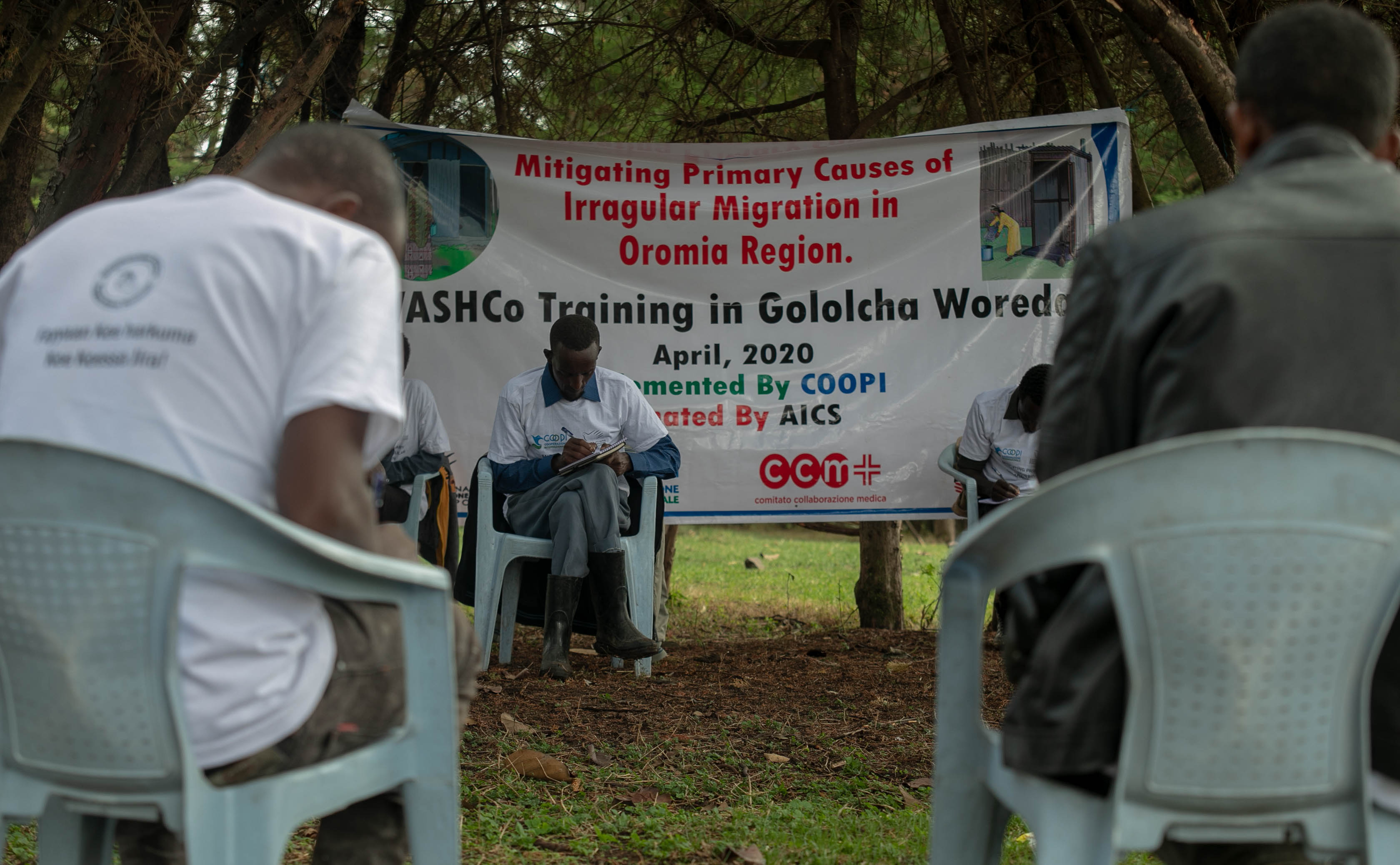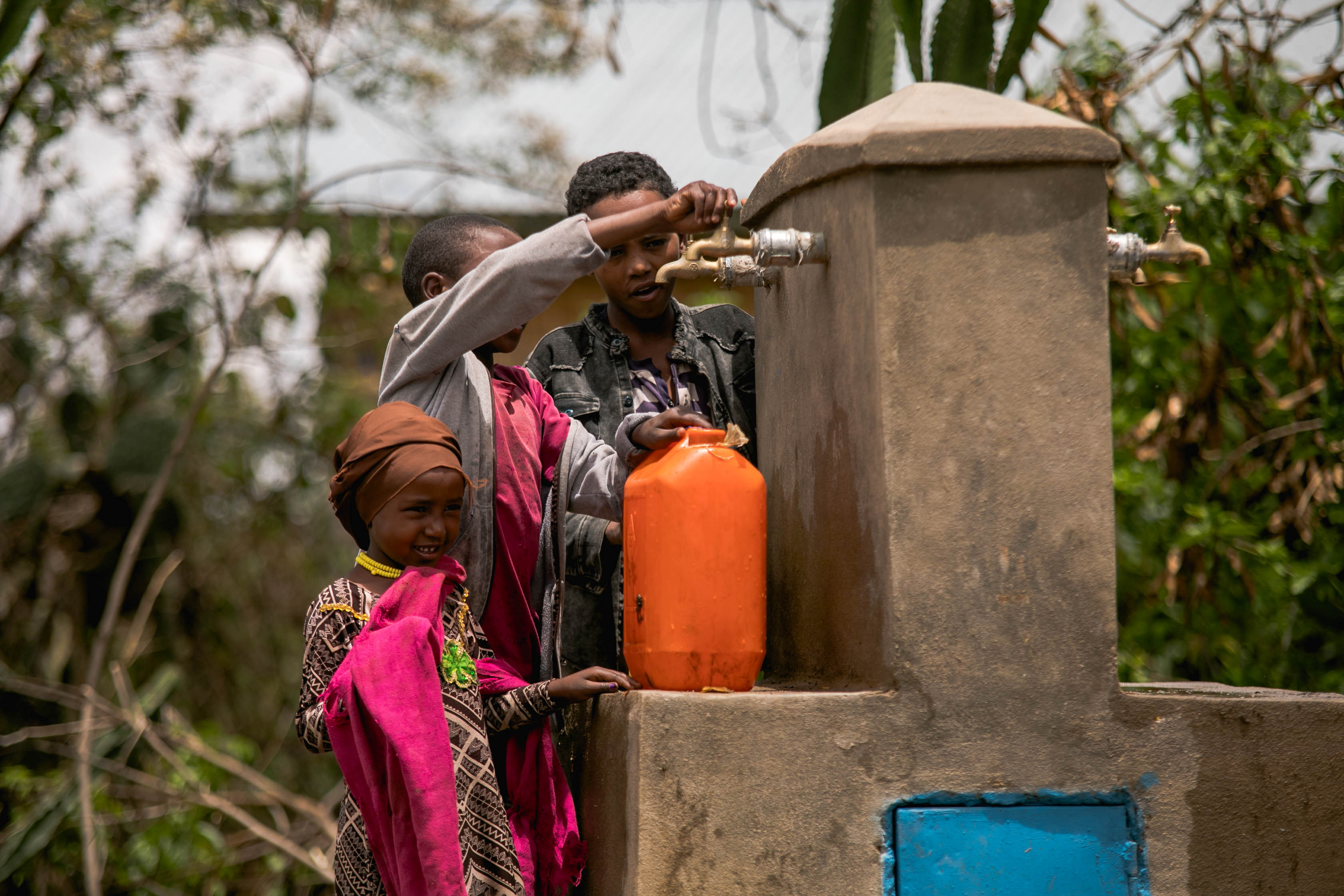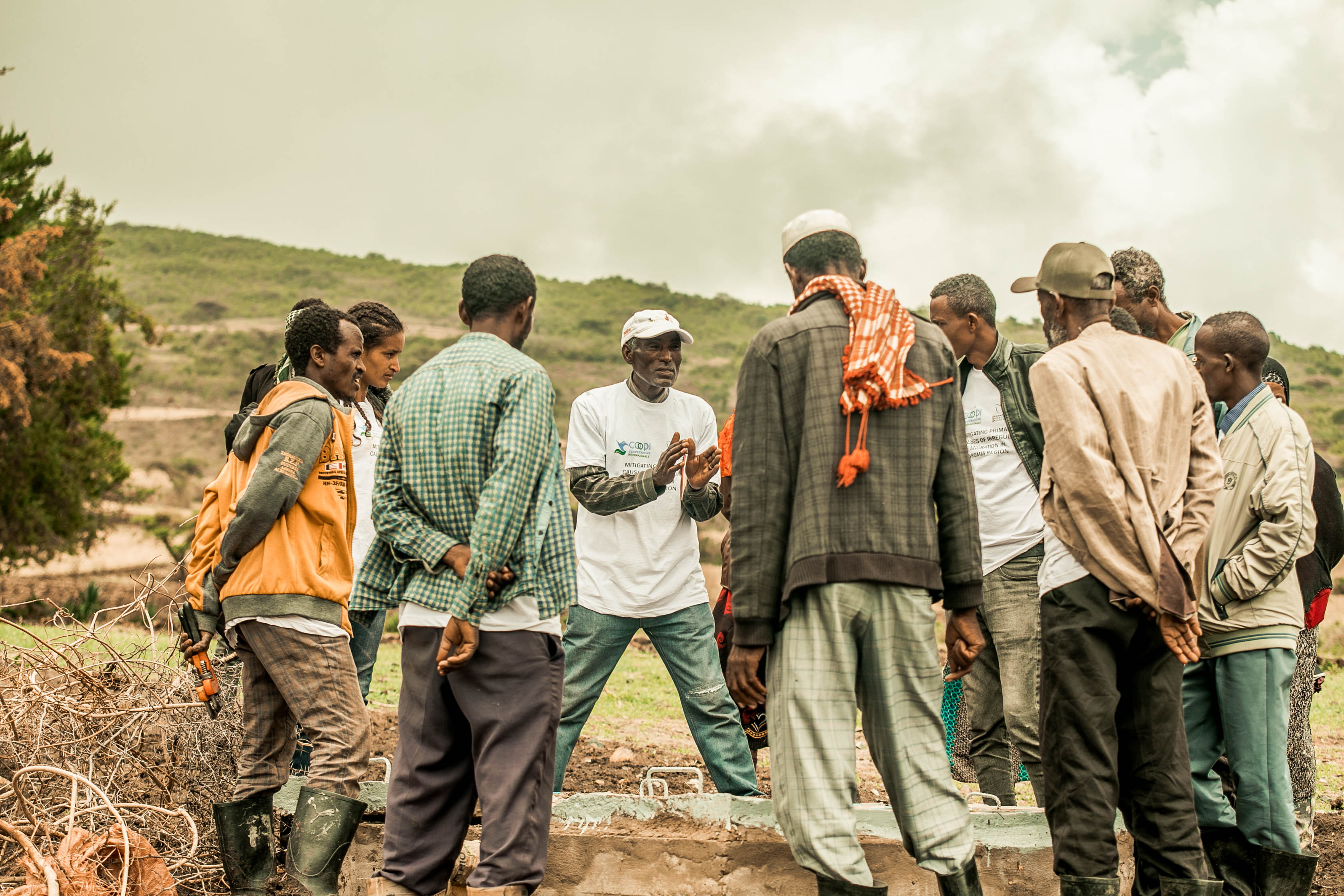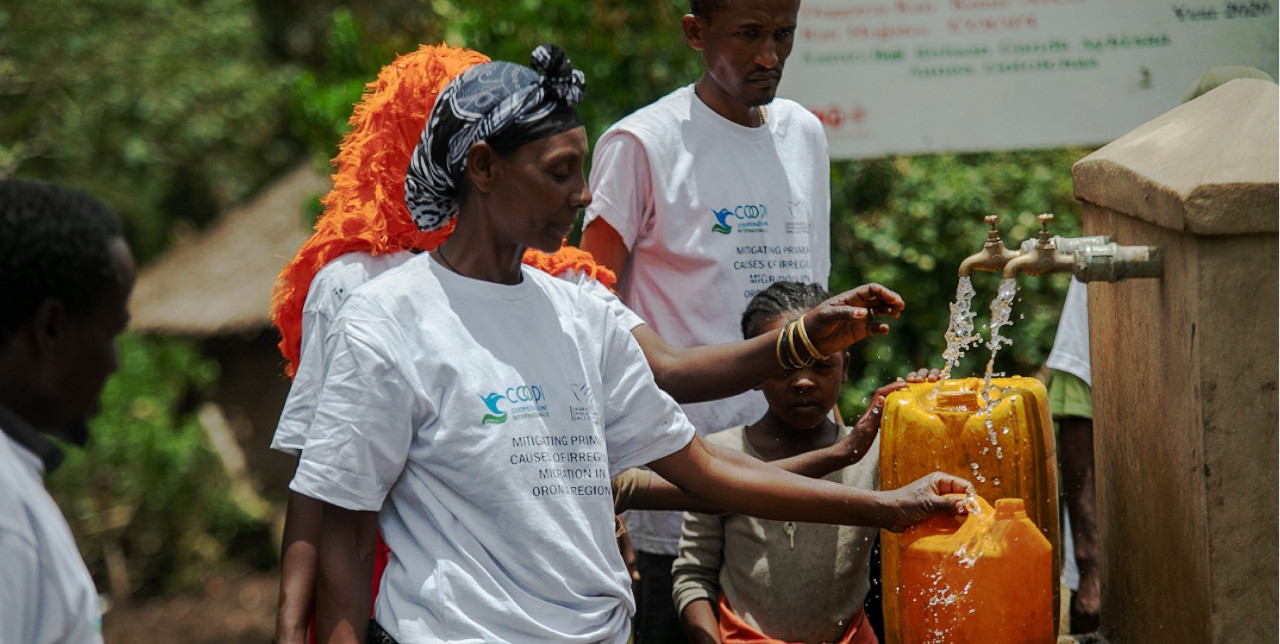08-04-2020 | di COOPI
Ethiopia. Access to safe water for 3,000 people
3,000 people have now access to safe water in Aybisa village – Ethiopia – thanks to the development and capping of spring extension, the installation of a 1.2 km pipe line, the construction of 4 water points and the implementation of an awareness campaign under the project “Emergency initiative for vulnerable returnee and potential migrant populations to mitigate the causes of irregular migration in Bale, Arsi and Western Arsi Zones of Oromia region” funded by the Italian Agency for Development Cooperation (AICS) and implemented by COOPI since July 2018.

Training session
Since January, COOPI has been conducting an awareness-rising campaign on hygiene and sanitation issues, which has brought to an increased access to water and an amelioration in personal hygiene. The campaign aims to fill the gaps in knowledge, attitudes and practices through activities such as music shows and live drama performances and using audio-visual material including leaflets and posters to grasp people’s attention.
Moreover, COOPI delivered a CHAST (Child Hygiene and Sanitation Training) addressing 30 children attending the village’s school. During these sessions, children learnt the links between personal hygiene and health thanks to a well-established participatory approach which used a range of exercise and educational games. The CHAST is based upon the premise that hygiene practices are largely acquired during childhood and therefore it is much easier to change young children’s habits than those of adults. In addition, children were enrolled in the school’s CHAST CLUB and they were provided with personal hygiene material, such as soaps and nail cutters, as well as hand washings taps, dust bins, brooms and plastic jugs for environmental sanitation in the school comping and surroundings.

Children enrolled in the local school
A WASH (Water, Sanitation and Hygiene) Committee was established, strengthened and trained to enable local people to manage and administer the new water system. Additionally, the committee was furnished with a set of equipment to use for maintenance and repair in case of emergency. This will increase the Committee’s sustainability and its independence.
Since 2018, COOPI is actively supporting the people of Gololcha Woreda. Based on the research findings realised by the Madda Walabu University in 2016, the economic argument is the single main pull factor for potential migrants, coupled by a ‘culture of migration’, poor awareness on risks, and lack of basic services at place of origin. Hence, to address these gaps, COOPI aims at creating access to basic services by increasing the number of people who have access to drinking water and suitable for cooking and the respect of personal hygiene norms. Thanks to this intervention, access to basic services will be guaranteed, economic opportunities will increase and social integration and psychosocial services for returnees will be offered.

Training session
Photo credits: Firaol Lemecha of MESOSO creative studio




 Ethiopia
Ethiopia